Death Stranding Review Roundup: Masterpiece or Mess?
Here's what the critics are saying
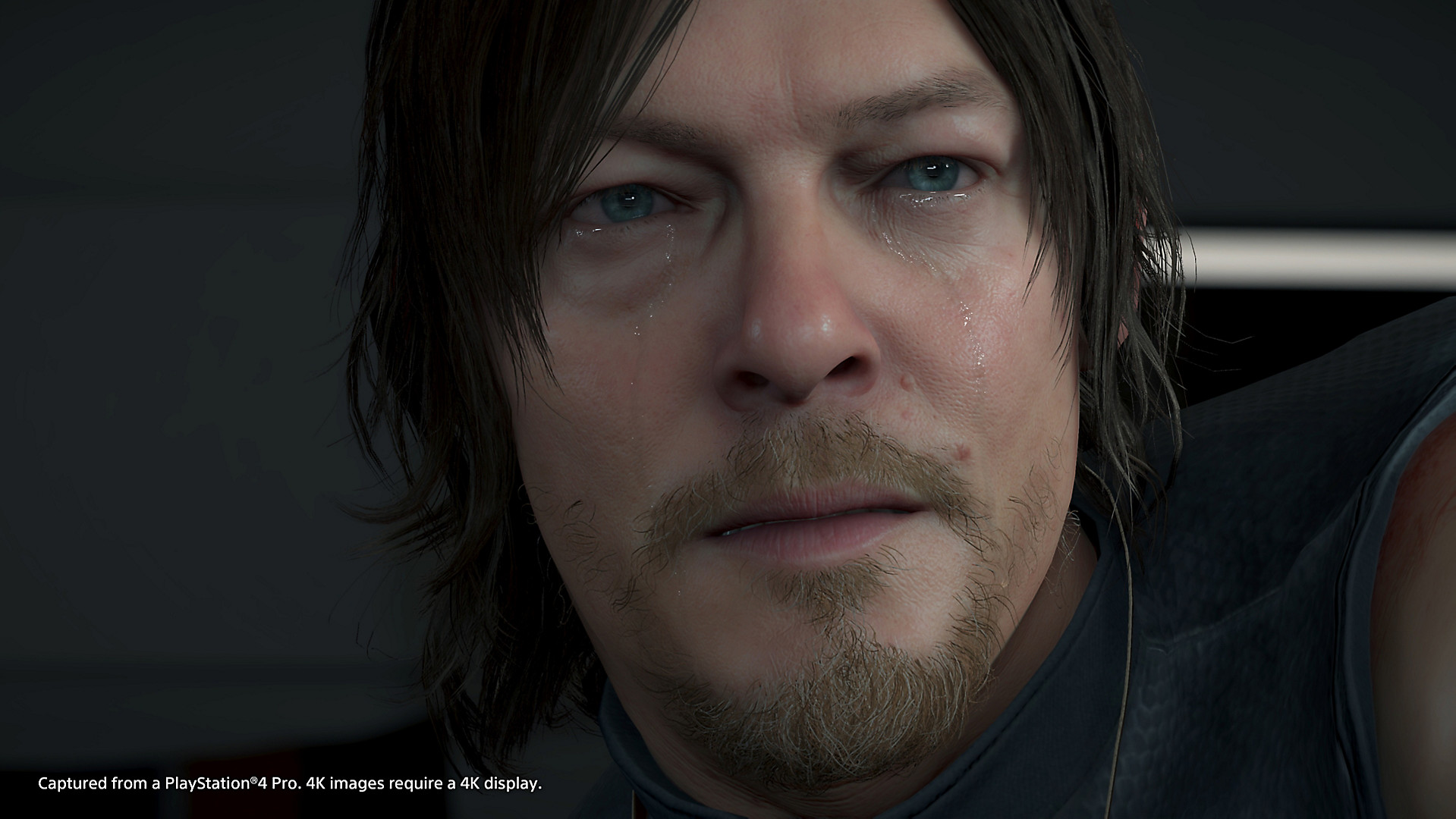
Update: Open-world hit Death Stranding comes to PC Game Pass today.
It’s not often that we get a game from Hideo Kojima, the famed video game developer and creator of the Metal Gear franchise. But in Death Stranding, out now for PS4 (with a PC release coming next year) Kojima and his team have just made their big comeback. And it’s all happening against the backdrop of a sci-fi world that you need to put back together.
Like other Kojima Productions games of recent memory, it’s teeming with some odd storytelling points, plenty of complexity, and enough story to last you dozens of hours before you even get close to the end.
Needless to say, Death Stranding was one of the most anticipated games of the year. And with plenty of storytelling behind it, many have believed that the game could be the best game to be released this year. But was it able to live up to that lofty goal?
Here's what the critics are saying about Death Stranding.
Kotaku
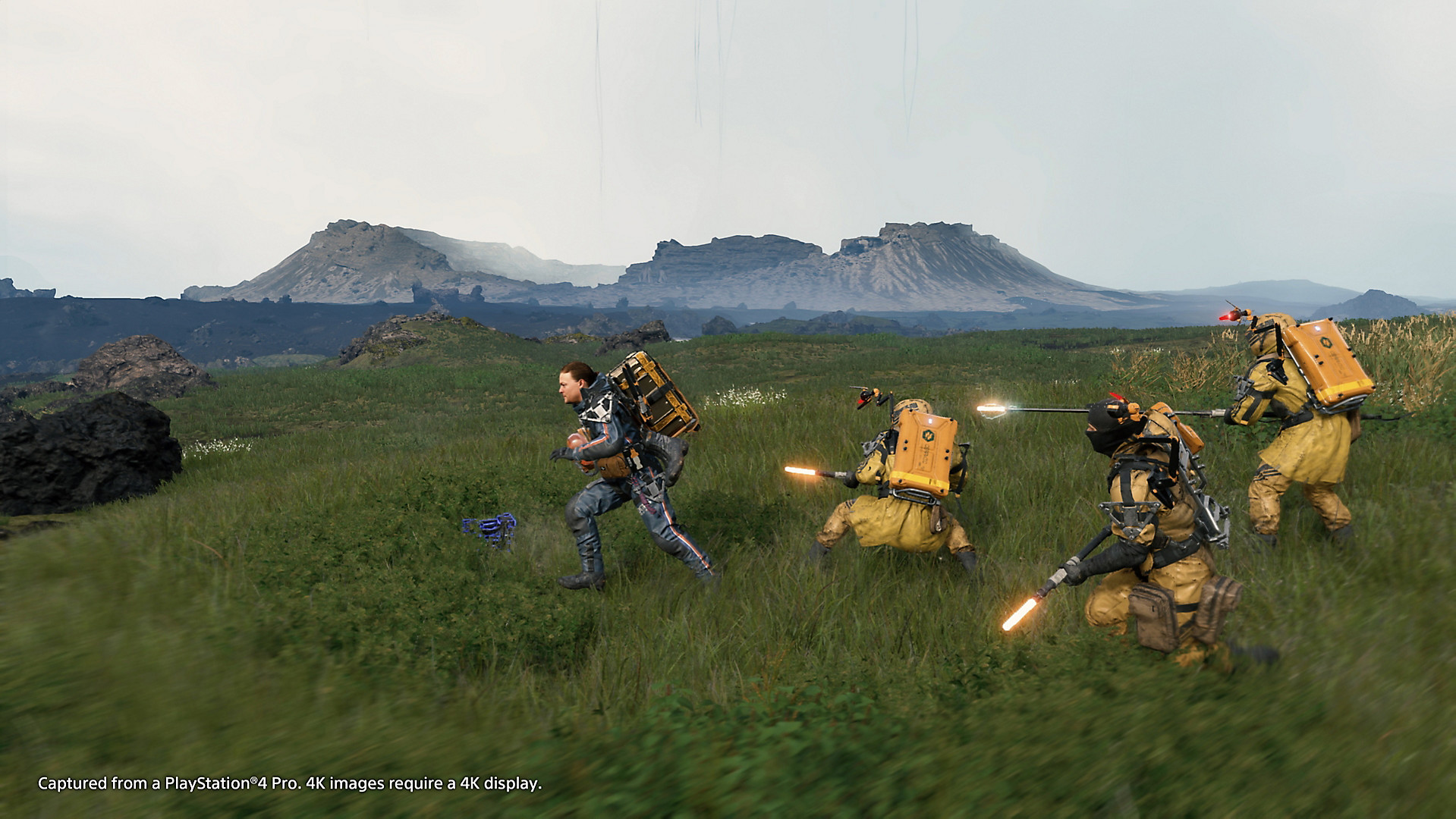
“It is a story about fatherhood. It is a broad dig at the gig economy. It is deeply concerned with upcoming environmental disaster and American politics, old and new.”
Heather Alexandra, Kotaku
Kotaku’s Heather Alexandra wasn’t necessarily sold on Death Stranding from the start. But after playing the game for dozens of hours, Alexandra found it was an interesting, if at times flawed, commentary on the way we live.
Pros
Get instant access to breaking news, the hottest reviews, great deals and helpful tips.
“It’s operatic, excessive, and ultimately leads to a finale so spectacular and absurd that it moves beyond anime overindulgence into a glorious pimple popping of plot.”
“The larger narrative of Death Stranding is spellbinding, but like The Phantom Pain before it, Death Stranding speaks more clearly through its systems, and is more interesting to play than its raw narrative is to experience.”
“The strongest story in Death Stranding is the one told by its systems, but the cut-scenes and other narrative elements are still captivating, a slow burn that starts with quiet character moments and ends with a mountain-high pile-up of plots and motivations.”
Cons
“After the initial plot is set up, the next 40 to 50 hours are devoted to quiet hikes and desperate forays with only a few plot punctuations.”
“I can think of the moment that was most clear to me. Multiple hours spent in snowy mountains assembling underappreciated ziplines and shelters had taken its toll. I was playing a portion of Death Stranding that was miserable, which gave me the harshest environment and robbed me of essential tools.”
“Death Stranding, to its detriment, never quite reckons with its use of American iconography—it is a nation founded on slavery and colonial slaughter—but it still opts to point a finger. Things as they are cannot stand or they will lead to ruin.”
Rating: No rating provided
IGN
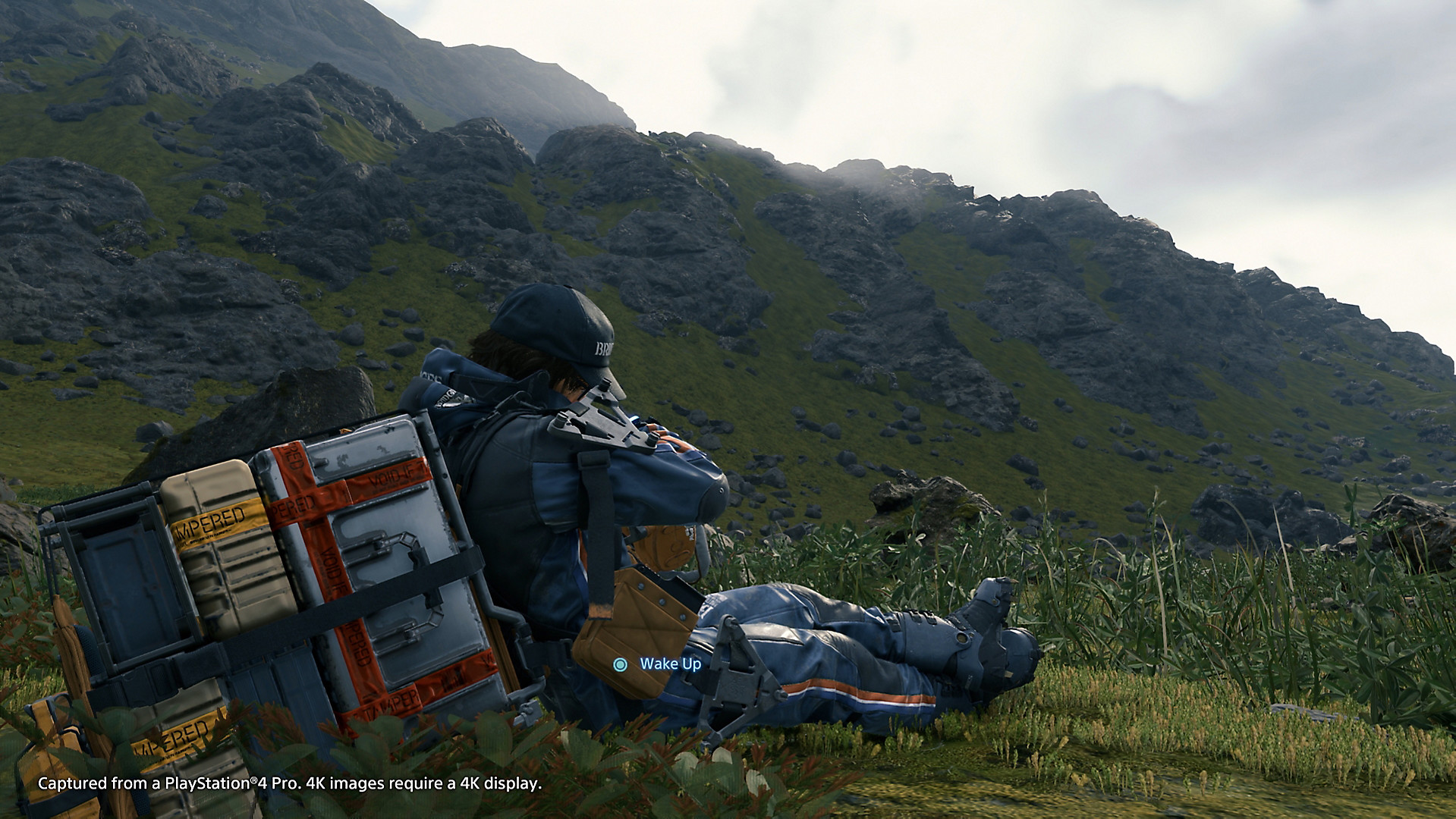
Death Stranding just can’t consistently get the balance right despite possessing equally lofty ambitions and countless inventive ideas.
Tristan Oglivie, IGN
IGN’s Tristan Ogilvie played Death Stranding through to the end. And although Ogilvie found some good along the way, ultimately, Death Stranding fell short with missions that were slow and dull, and a poor pace.
Pros
“Despite all of my gripes I still found myself being pulled, albeit slowly, towards Death Stranding’s story climax. That’s mostly due to the sense of nobility that comes from rebuilding a fractured America, the pioneering spirit of finding out what, exactly, was over the next hill (even though more often than not it was just slightly larger hills), and the lure of uncovering the mysterious cause of the Death Stranding itself.”
“Take the bola gun: firing it to wrap around an enemy’s torso will briefly immobilise them as they struggle to eventually wriggle free of the cord, buying Sam a precious few moments to scurry into denser foliage or behind a rock to break the line of sight.”
“Death Stranding is staggering in scale and rich in detail, to the point that initially I wanted to slow down and pore over every inch.”
Cons
“There is a fascinating, fleshed-out world of supernatural science fiction to enjoy across its sprawling and spectacular map, so it’s a real shame that it’s all been saddled on a gameplay backbone that struggles to adequately support its weight over the full course of the journey.”
“Spending close to an hour schlepping heavy cargo through waist-deep snow, up and down mountains, constantly pushing against fierce winds, in a pair of shoes that wear out over time isn’t an enjoyable video game mission – it’s a lecture your parents used to give you when you complained about having to walk to school.”
Rating: 6.8 out of 10
Polygon
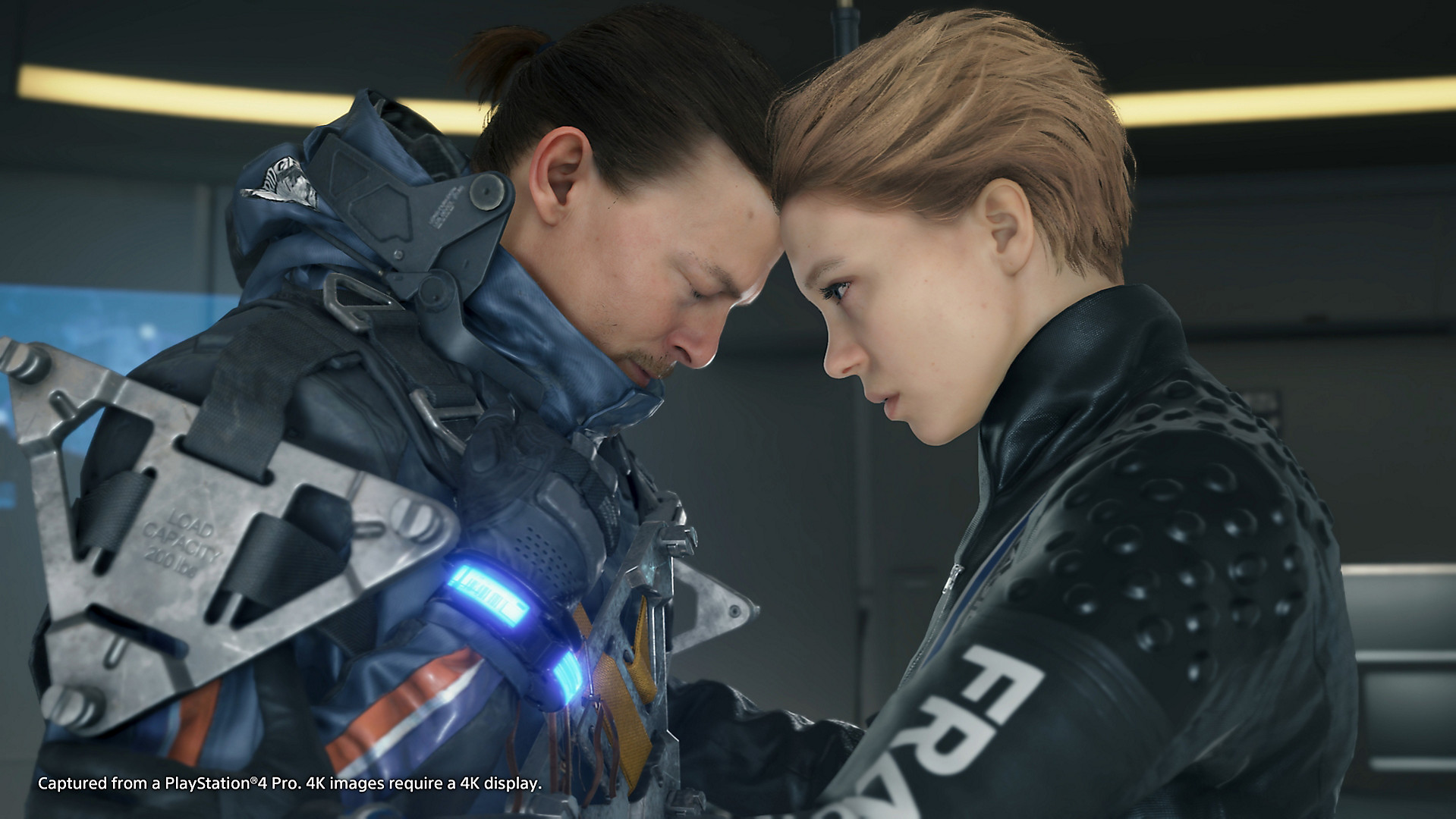
After years of wondering what Death Stranding actually is, I can finally report that it’s a game composed entirely of fetch quests. Forty-plus hours of that may sound like torture, but shockingly, it’s actually pretty damn fun once it gets out of its own way.
Russ Frushtick, Polygon
It wasn’t easy for Polygon’s Russ Frushtick to find all of the good parts of Death Stranding. Frushtick was disappointed by both the beginning and end of the game, which proved to be much slower and less interesting than they should’ve been. Overall, Frushtick called the game “the most advanced walking simulator the world has ever seen.”
Pros
“The actual walking in Death Stranding is incredibly complex: Each small rock or ledge is capable of tripping Sam, sending his packages flying. I find myself constantly scanning the environment, surveying the landscape to find the smoothest possible route through a perilous rocky outcropping.”
“There are more opportunities to build on, and civilize, this land as the game continues. By the end, the world is unrecognizable from the untouched wilderness you first set out to explore and connect. It’s now a delivery man’s paradise, with every nook and cranny designed to make each shipment slightly easier. You are, quite literally, optimizing the world.”
Cons
“Kojima and his team devote Death Stranding’s first 10 hours to breaking up the walking gameplay with melodramatic cutscenes that seek to explain the game’s world. These cutscenes are outrageously overwritten and long, frequently stating (and then repeating) the same talking points, dragging the pace of the introduction to an absolute crawl.”
“It takes about 10 hours for the throat-clearing to wrap up and for Death Stranding’s structure and mechanics to fully reveal themselves. And those 10 hours are some of the weakest in the game, thanks to the endless cutscenes and a series of bummer quests that have me lugging packages (and even a corpse!) up steep hills in the rain.”
“The final 10 hours of Death Stranding are a slog, just like the first 10 hours, as my leash is tugged from emotional monologue to ridiculous boss fight to emotional monologue. While a few of these narrative threads make sense and land with some gravitas, others sound like the ramblings of someone on speed who thinks they’ve figured out how the universe works.”
Rating: No rating provided
GameSpot
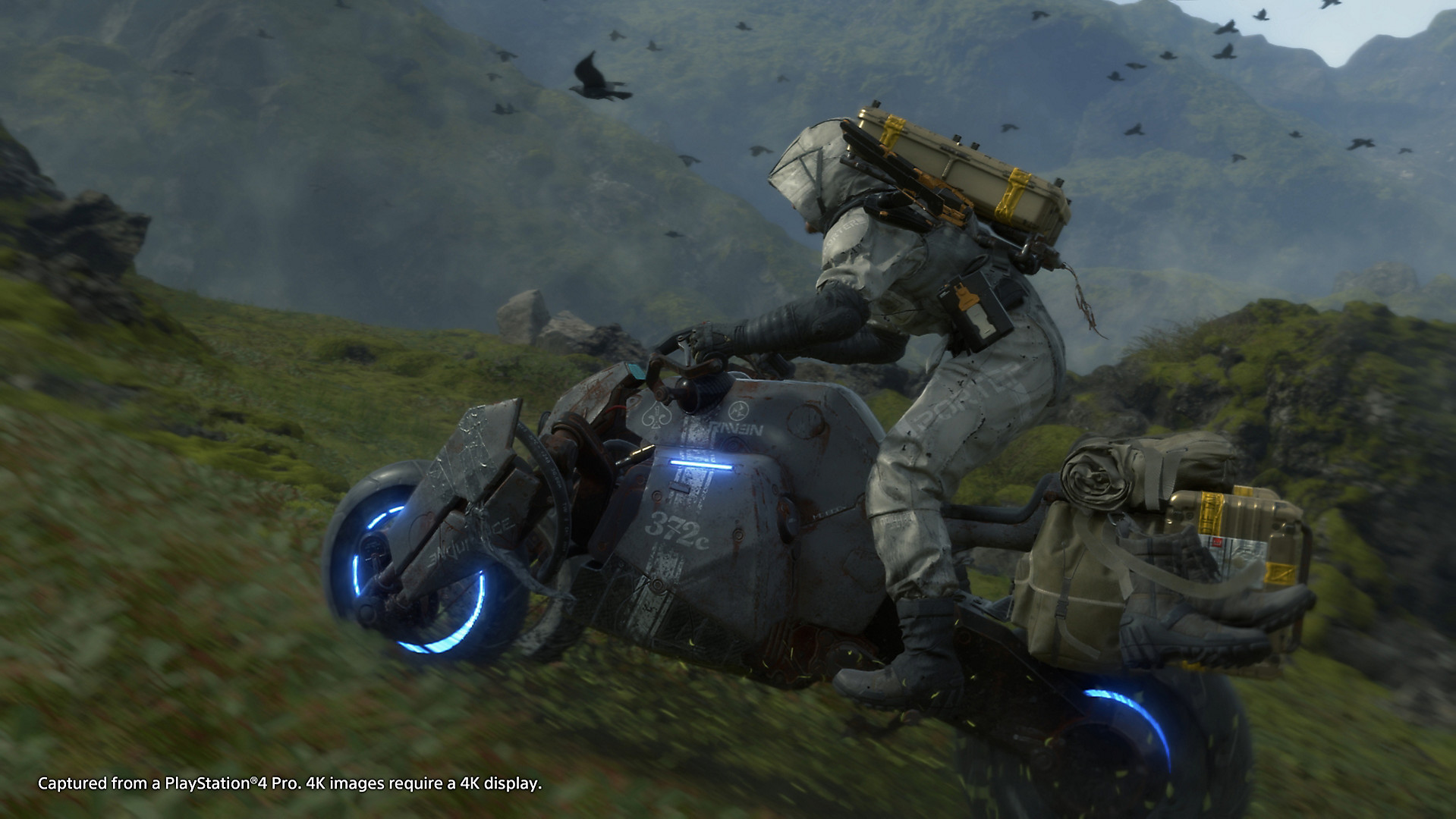
It's a game that requires patience, compassion, and love, and it's also one we really need right now.
Kallie Plagge, GameSpot
Against the backdrop of rather ho-hum reviews, GameSpot’s Kallie Plagge had an awful lot of good things to say about the game, even giving it a score of 9 out of 10. Plagge found the story to be quite good and thought the broader context of the title made it more impactful. Overall, Plagge thought it was a winner.
Pros
“In keeping with the theme of human connection, each of the core characters you meet and work with has their own story to tell. They all have a unique perspective on death that lends them an equally unique perspective on life, and unravelling their characters, down to the true origins of their often literal names, contributes to the overall tapestry of Death Stranding's take on the human experience.”
“By far my favorite character--and the most important one--is BB. BBs are infants in pods that can detect the presence of BTs, and they're issued to porters like Sam to help them navigate dangerous territory. You're told to treat BBs like equipment, not real babies, but it's impossible to think of your BB that way. It's full of personality, giggling when happy and crying when stressed out; it even gives you likes from time to time.”
“It's positive without ignoring pain; in fact, it argues in both its story and its gameplay that adversity itself is what makes things worth doing and life worth living. It's a game that requires patience, compassion, and love, and it's also one we really need right now.”
Cons
“Death Stranding is a hard game to absorb. There are many intertwining threads to its plot, and silly names, corny moments, and heavy exposition belie an otherwise very simple message. That comes through much more clearly in the game's more mundane moments, when you find a desperately-needed ladder left behind by another player or receive a letter from an NPC thanking you for your efforts.”
“The first few hours of the game are the slowest, and a large part of that is because you don't have access to the online component right away. It's an incredibly lonely stretch of time during which you mostly just walk.”
Rating: 9 out of 10
GamesRadar
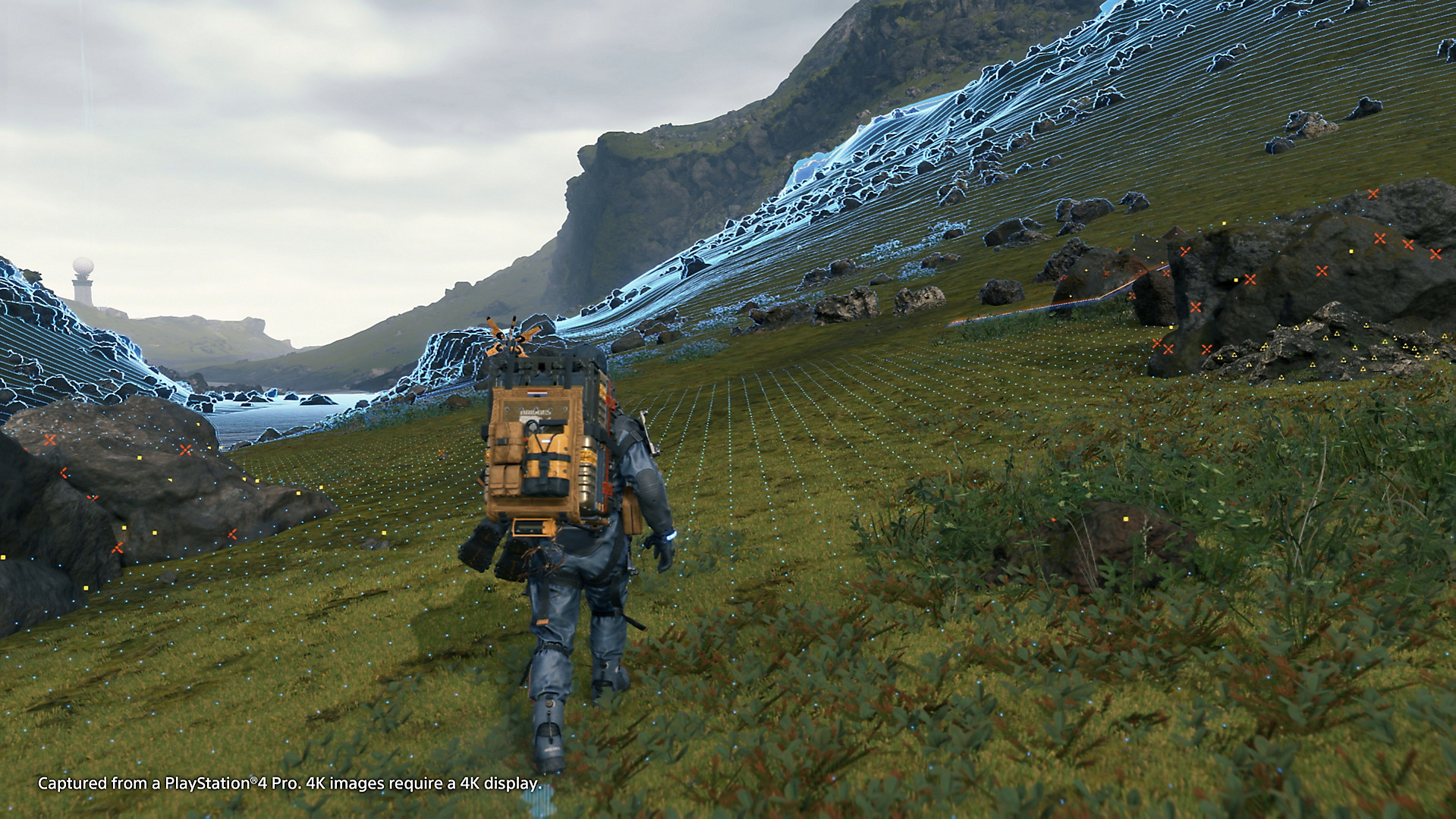
I hit around 30 hours at the Chapter 3 mark, before I discovered I was barely a quarter of the way through and made the conscious decision to focus more on the story.
Leon Hurley, GamesRadar
Over at GamesRadar, reviewer Leon Hurley had some trouble with the game. Hurley enjoyed just how beautiful the game was and said the world was outstanding. But at the end of the game, Hurley, who spent dozens of hours playing the game, found its main mechanic — walking — to be tedious.
Pros
“Progress is key to really enjoying it. I hit around 30 hours at the Chapter 3 mark, before I discovered I was barely a quarter of the way through and made the conscious decision to focus more on the story. Doing so gives everything more impact and meaning by bringing the cutscenes and story closer together, and adds more variety to what limited texture with a quicker progression of new locations, equipment and other things.”
“The groundbreaking visuals create a beautiful world, and there’s an incredible atmosphere when you reach a great view, or take a moment bathe in the glory of the snow crusted mountain you’ve just scaled. When the setting, progress and music combine it is a mood. If nothing else I’m a Low Roar fan now having played 70 odd hours of possibly the most expensive interactive music video ever made.”
“There’s one other thing that also makes life easier, and that’s everyone else playing the game."
Cons
“There is an okay experience here, filled with a scrapbooking hokum of afterlife mythology and pseudoscience, with a cast of likeable if bluntly literal characters but it’s a game that, ironically, is easily lost in its lengthy delivery.”
“There’s a lot of symbolism and metaphor spread thickly all over all of the story and characters, and some of it is incredibly literal – Mama is a mother, Heartman’s heart stops every 21 minutes, etc – some of it is nonsense.”
“After all the conspiracy theories, conjecture and just plain hype, Death Stranding turns out to be about carrying boxes from A to B. And, often, back again. That’s it. That’s the game.”
Rating: 3.5 out of 5
Don Reisinger is CEO and founder of D2 Tech Agency. A communications strategist, consultant, and copywriter, Don has also written for many leading technology and business publications including CNET, Fortune Magazine, The New York Times, Forbes, Computerworld, Digital Trends, TechCrunch and Slashgear. He has also written for Tom's Guide for many years, contributing hundreds of articles on everything from phones to games to streaming and smart home.
 Club Benefits
Club Benefits





